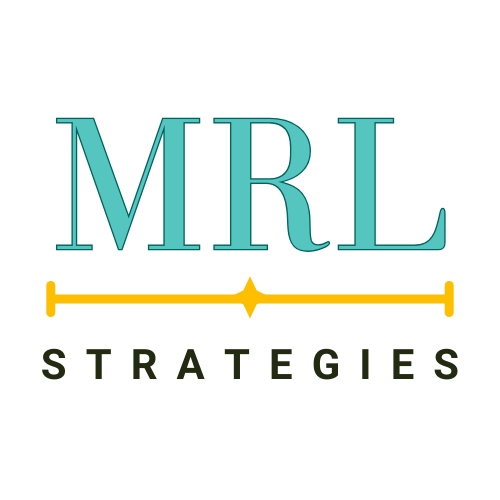Beyond Fundraising: Building Development Expertise in Movement-Centered Work
If you’re a fundraiser in a “tiny but mighty” organization, chances are you’ve felt it: the pressure to raise more with less. To perform miracles with skeleton crews (if not a one-person show) and piecemeal budgets. To meet arbitrary fundraising goals while staying accountable to the people and missions you actually serve.
In these spaces, “development” often becomes synonymous with exhaustion. But it doesn’t have to be.
Before we delve into the how, I want to ground us in the why. If you are a fundraiser, you are an organizer—not just a solicitor. The difference lies in the ethos. Fundraisers mobilize resources; organizers mobilize stakeholders. That includes donors, yes—but also volunteers, collaborators, community members, and champions for change. Your role isn’t just about raising money. It’s about rallying people around a shared vision for justice.
Development expertise—when grounded in community and equity—isn’t about chasing money. It’s about resourcing movements, redistributing power, and reclaiming sustainability. And that expertise can be built, even when capacity is stretched thin.
1. Redefine Development as a Movement Strategy
Too often, fundraising is treated as a transactional function rather than an integrated part of the work. In justice-centered missions, development should be seen as a tool for movement building—not just survival.
That means:
Rooting your case for support in shared values, not just outcomes
Inviting donors into collective vision—not just extractive asks
Funding community power—not organizational ego
If you’re under-resourced: Start by creating one messaging document that clearly defines how your fundraising work aligns with your movement goals. Use it to orient new team members, onboard board members, and anchor donor conversations.
2. Build Cross-Functional Fluency (Without Burning Out)
Fundraisers are often asked to do everything: write grants, design campaigns, report impact, build relationships, and somehow manage a database. But real development expertise requires cross-functional understanding—not martyrdom.
You don’t have to master every role. But you do need to understand how your work intersects with:
Programs and service delivery
Evaluation and learning
Finance and budgeting
Community engagement
If your team is small: Build a shared language. Host a 30-minute monthly “development + program sync” to align stories, stats, and strategy. Create one cross-departmental Slack channel or Notion page to track impact narratives and upcoming opportunities. Start small, but stay intentional.
3. Make Metrics Work for You—Not Just Funders
Yes, funders want reports. But community-centered development reframes data as a tool for reflection, celebration, and accountability—not just compliance.
Fundraisers should help shape how impact is defined. That includes:
Co-developing qualitative + quantitative metrics with program staff
Uplifting community-defined success indicators
Capturing stories that center dignity, not pity
If you lack a dedicated evaluation person: Choose 2–3 metrics that matter most to your community and start there. Pair each with 1–2 stories that bring them to life. This becomes your mini case library, ready to plug into proposals, reports, or campaigns.
4. Shift from Donor-Centered to Community-Accountable
Many fundraisers have been trained to prioritize donor preferences—how they like to be thanked, how often they want updates, what outcomes they want to fund. But in community-led work, the question becomes: How do we invite donors to be accountable to the community—not the other way around?
That might look like:
Naming power dynamics in your case statements
Encouraging multi-year, general operating support
Refusing funding that undermines community priorities
Inviting funders to learn from, not just give to, your work
If you’re worried about alienating donors: Start by segmenting your list. Identify values-aligned donors and foundations who are ready for deeper engagement. Educate through stories, not shame. Transformation happens through relationship.
5. Prioritize Capacity Building as Development Work
I’m not just saying this as a capacity builder. Capacity is not a luxury—it’s the foundation of sustainability. And yet, many grassroots groups are stuck in cycles of underinvestment: stretched staff, overburdened leadership, and zero room to grow. As a fundraiser, your job isn’t just to secure the bag. It’s to make the case for resourcing infrastructure, not just programming.
That includes:
Salaries and benefits
Technology and tools
Evaluation and learning
Time for rest, reflection, and leadership development
If you’re hesitant to name these needs: Reframe them. Don’t apologize for asking for admin support—call it “investing in the longevity of community leadership.” Don’t shy away from rest—frame it as a retention and impact strategy.
6. Learn Continuously—and Collectively
You don’t have to become an expert overnight. But to build a development practice rooted in equity and sustainability, you must remain a student.
Look for learning spaces that reflect your values:
Webinars, podcasts, or hubs led by justice-focused fundraisers and organizers (I’m a big far of The Ethical Rainmaker, Nonprofit AF, and the Forge)
Community-centric fundraising collectives and programs
Learning cohorts that integrate healing, strategy, and systems design
If your budget is tight: Host peer learning lunches. Start a book club. Trade skills with partner orgs. Join a forum online. And remember—your lived experience in this work is a form of expertise, too.
Final Thoughts: From Extraction to Empowerment
The truth is, many fundraisers in community-rooted work are doing development in survival mode. Underpaid, overextended, and overlooked—yet still pushing for change because something deep down compels you to believe it’s bigger than just a job.
And development can be that. It can be a space of strategy. Of sovereignty. Of shared power.
If you’re committed to liberation, then building development expertise isn’t about learning to ask better. It’s about learning to build better—systems, relationships, and practices that reflect the world we’re fighting for.
You don’t have to settle for being just another fundraiser if your passion is calling for more meaningful work. You can be a movement builder. Treat your work accordingly.


